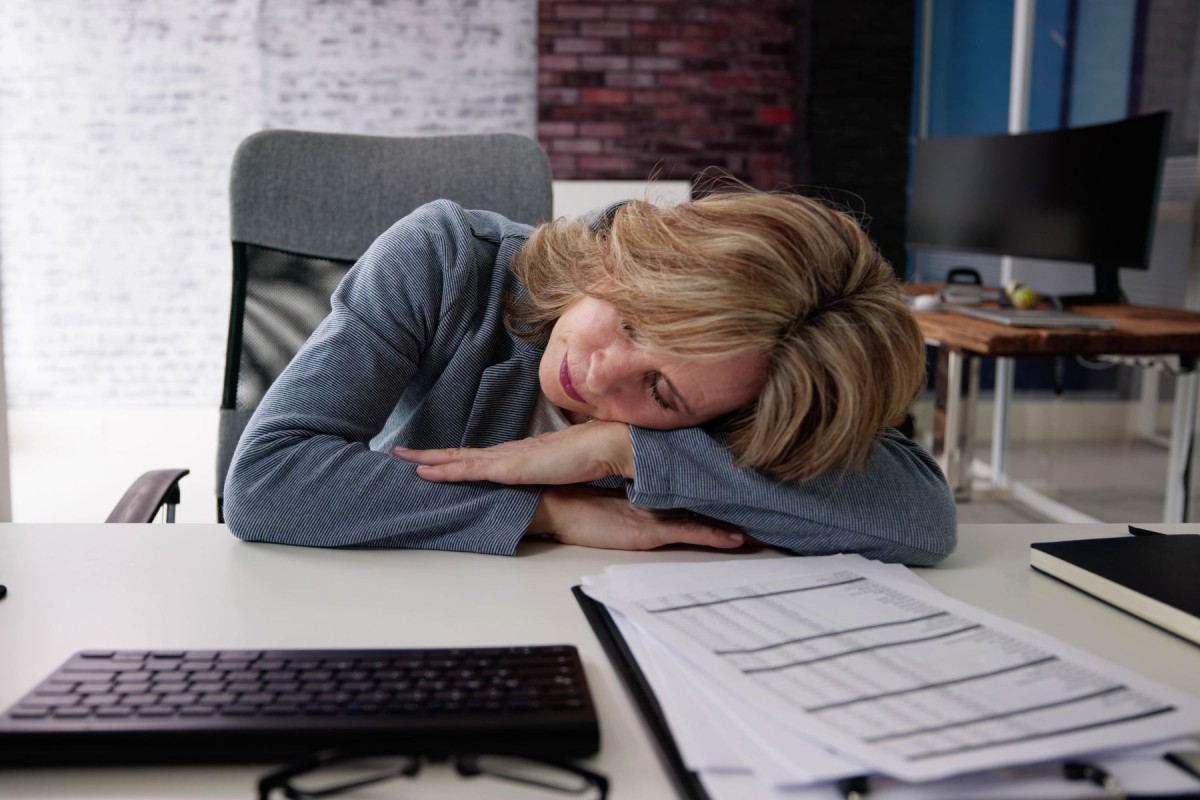We all get tired after a long day, a tough workout, or another late night. Tiredness is your body’s simple way of saying, “I need a break.” There’s usually a clear reason: lack of sleep, physical effort, or stress. Your energy dips, and you might feel sluggish, but a good night’s rest, a huge cup of coffee, or some downtime often does the trick.
Fatigue is a different beast. It’s a lingering, overwhelming, all-consuming exhaustion that doesn’t let up with sleep or relaxation. It can sneak up gradually or hit all at once. Some people describe it as a heavy feeling in their body, while others feel like they’re wading through mud. You might find it hard to concentrate, get through the workday, or even keep up with conversations. And no matter how early you go to bed or how much caffeine you have, it doesn’t ease off.
According to Dr Alex Bartle, Medical Director of the Sleep Well Clinic, the difference between sleepiness and fatigue is often misunderstood. “Basically, sleepiness is your ability to fall asleep in passive situations. So you know, if you’re sitting quietly after lunch or lying down after lunch, if you’re watching TV, if you’re reading, they’re all passive situations. Could you go to sleep in that? That’s sleepiness,” he explains.
“Fatigue is cognitive stuff. Fatigue is related to concentration, memory, decision-making, speed of thinking, motivation, and mood, particularly.”
When a nap just doesn’t cut it
The tricky part is that tiredness and fatigue often get used interchangeably. But there are important differences. Tiredness usually has an obvious cause and an easy fix: lack of sleep, stress, or overexertion. It comes and goes. Fatigue sticks around, and it can be your body’s way of telling you that something else is going on under the surface.
“So often, they coexist,” says Dr Bartle. “But if you have insomnia, for example, which is where I come in, by definition, you can’t sleep.”
The key sign? Sleep doesn’t reset you. That’s a big giveaway of fatigue, not just needing to catch some z’s. It is important to see a healthcare professional if fatigue:
• Persists for more than two weeks
• Is not improved by sleep or rest
• Interferes with work, social, or personal responsibilities
• Comes with additional symptoms such as weight loss, mood changes, night sweats, or unusual pain
• Affects your ability to drive or concentrate safely
Dr Bartle advises, “If you’re getting unusually tired and falling asleep at inconvenient times, let’s put it that way. So you know, when you’re watching TV, you’re not getting through a whole movie without falling asleep. And obviously, the worst-case scenario is if you start feeling sleepy while driving. That’s towards the more severe end, and you definitely need to get some help and find out what’s going on.”
He adds that even less obvious scenarios should prompt action. “Even, you know, social things. If you’re yawning or falling asleep and struggling to stay awake when you’re in meetings, for example, or falling asleep halfway through a movie. The fatigue is more intense; I struggle to concentrate, my memory is fading, and I’ve lost motivation to do things like go for a walk. I just can’t be bothered. That’s more fatigue.”
Fatigue can be a symptom of a serious health issue or sleep apnoea, to mental health struggles like anxiety or depression. It can even point to chronic conditions such as long COVID or ME/CFS (chronic fatigue syndrome).
A doctor may perform blood tests to check for common causes such as iron deficiency, thyroid function, vitamin levels, and infection markers. In some cases, further investigation into sleep quality, mental health, or chronic conditions may be required. Ignoring it can let serious health issues slide, or badly impact your quality of life.
Feeling tired now and then? That’s just life. But constant exhaustion, no matter how much rest, is a signal you shouldn’t ignore. Fatigue can significantly impact your mood, productivity, and overall well-being. It’s easy to brush off tiredness as just part of life, especially when things get busy. But if it starts to feel like your energy is always on empty, don’t just push through. Your body is trying to tell you something, and it’s always worth listening.
Feeling fatigued, constantly and without reason, is not normal. If you’re stuck in a cycle of never feeling rested, it might be time to stop chalking it up to a “busy life” and start asking why.





